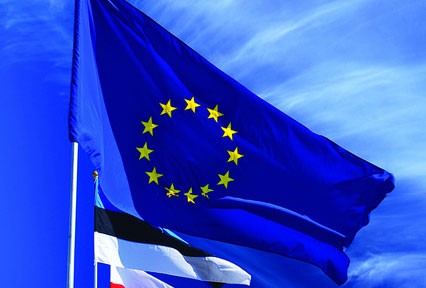This post was contributed by Barbara Warnock, third year PhD student in Birkbeck’s Department of History, Classics and Archaeology, who is currently researching the work of the League of Nations in Austria in the 1920s. The title of thesis is ‘The Significance of Austrian Financial Reconstruction 1922-1926’.
 As negotiations between the ‘troika’ and the Greek government continue, the Austrian Chancellor, Werner Feymann, has adopted a more sympathetic line than many European leaders in relation to Greece’s current predicament stating in early June: ‘I stand on the side of the Greek people’. His sentiments call to mind events more the ninety years ago when it was the plight of the Austrian people that was a cause of international concern.
As negotiations between the ‘troika’ and the Greek government continue, the Austrian Chancellor, Werner Feymann, has adopted a more sympathetic line than many European leaders in relation to Greece’s current predicament stating in early June: ‘I stand on the side of the Greek people’. His sentiments call to mind events more the ninety years ago when it was the plight of the Austrian people that was a cause of international concern.
The world’s attention this week is on Greece, but in the early 1920s, it was the newly founded republic of Austria that received the attention of the international community, in what was the first ever comprehensive international bailout and structural adjustment programme, orchestrated by the League of Nations in 1922.
Greece’s present problems around debt, collection of taxation and an excessively strong currency mirror aspects of Austria’s crisis after the First World War. Back then, Austria too had difficulties around debt and taxation. The issue with their currency, the Krone, however, was rather different, in that its value was collapsing.
Austria had been one of the states most badly affected by the First World War. The defeated country was shorn of empire, monarchy and to a large extent, identity. Austria was beset by a multitude of difficulties including desperate shortages of food, trading problems and the uncertainly caused by the imposition of reparations (although these were never actually collected). Confidence in the very viability of the country was scare, and the Krone became ever weaker in value. Inflation turned into hyperinflation and the government struggled to finance its expenditure. Obtaining foreign loans to help the country meet its obligations became impossible.
In this context, in 1922, the Financial Committee of the League of Nations – a precursor to the IMF – designed a rescue package for Austria. This entailed League assistance in obtaining foreign loans, which were underwritten by the governments of Britain, France, Italy and Czechoslovakia in return for a commitment that the country would not seek to unify with Germany, and measures to fix the value of the Austrian currency. The programme also included the ‘reconstruction’ of Austrian state finances, which entailed large reductions in the numbers of civil servants, cuts to government expenditure and restrictions on the salaries of state employees, all to ensure a permanently balanced government budget.
Much of this may sound very familiar to those living in Greece (or even Britain) today, and the similarities go further. Austria also had to submit to the control of a version of the modern ‘troika’, (the IMF, European Central Bank and the EU), operated via the League of Nations. A League Committee of Control (representing interested League members); the League’s Financial Committee (composed of bankers, financiers, and treasury representatives); and a League-appointed ‘Commissioner-General’, Alfred Zimmermann, all provided monitoring and oversight.
Zimmermann was dispatched to live in Vienna to enforce the terms of the deal and control the expenditure of the foreign loans. This kind of control was, like that of the troika, a source of humiliation and enormous resentment in Austria. Zimmermann, like the troika, frequently condemned the lack of progress on ‘reform’ made by the Austria government.
Another striking similarity between the work of the League and that of the current troika in Greece is the lack of real consideration on the part of those bodies overseeing such programmes for the effects that their schemes have on living standards and on the political climate. Rigid adherence to economic dogmas, as practiced by the troika, as Greece has found, can have disastrous consequences.
In Austria, the League’s programme did deliver foreign loans for the country, and produced a stabilised currency. However, it also resulted in high levels of unemployment and the reduction of government social support. Furthermore, the programme undermined the already shaky stability of Austrian banks and increased political tensions within the country.
The League essentially withdrew their control from Austria in mid-1926, only to become involved again during Austria’s economic difficulties in the 1930s. By 1933, parliament had ceased to operate in the Austrian Republic. In 1934, the Social Democratic movement was smashed, and in 1938, the country was incorporated into the German Reich.
The problems of interwar Austria were manifold, but the contribution that this inaugural attempt at an international bailout made towards creating a viable future for the country is debateable. As others, including Paul Krugman, have remarked, the apparent lack of awareness of the troika of the problems that interwar deflationary policies caused is one alarming aspect of the Greek crisis.
Find out more

